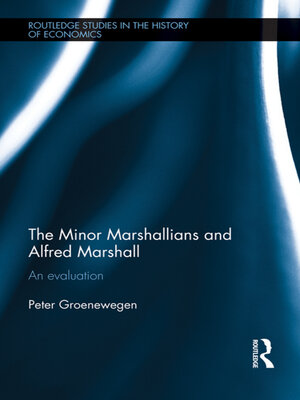Minor Marshallians and Alfred Marshall
ebook ∣ An Evaluation · Routledge Studies in the History of Economics
By Peter Groenewegen

Sign up to save your library
With an OverDrive account, you can save your favorite libraries for at-a-glance information about availability. Find out more about OverDrive accounts.
Find this title in Libby, the library reading app by OverDrive.



Search for a digital library with this title
Title found at these libraries:
| Library Name | Distance |
|---|---|
| Loading... |
Alfred Marshall, Professor of Economics at Cambridge University (1885-1908), produced a distinguished a distinguished crop of students, many of them leaders in the economics profession in subsequent generations. Pigou, Keynes and Denis Robertson are undoubtedly the most famous of these Marshall 'pupils' but there were many more, even if more minor forces in the development of early twentieth century economics. This book intends to examine the major work of ten of these 'minor' Marshallians – Sydney John Chapman (1871-1951), John Harold Clapham (1873-1946), Charles Ryle Fay (1884-1961), Alfred William Flux (1867-1942), Frederick Lavington (1881-1927), Walter Thomas Layton (1884-1966), David Huchinson MacGregor (1827-1953), Joseph Shield Nicholson (1850-1927), Charles Percy Sanger (1871-1930) and Gerald Francis Shove (1888-1947), to name them in alphabetical order.
The broad aim of this book is to evaluate the more important contributions of these 'minor' Marshallians by selective examination of their major economic work. That evaluation has at least two dimensions. First, it focuses on the significance of the author's individual contributions to the development of twentieth century economic thought. Secondly, it attempts to assess the Marshallian credentials of these contributions in order to indicate how Marshallian in their economics these 'pupils' of Marshall's economics teaching actually stayed.







